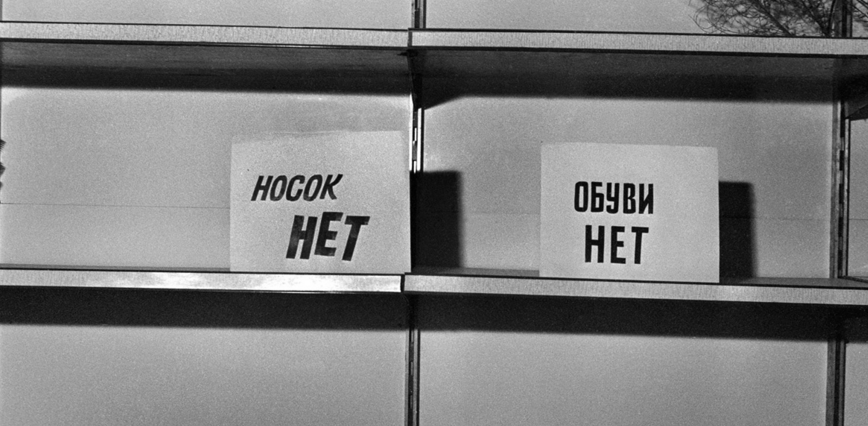"The psychology of influence." Book in 15 minutes

We share with you another sammari (summary) on Robert Cialdini’s now classic book “Psychology of Influence”. Surely some of the conclusions will seem familiar to you, but this is because of the huge popularity of the book itself, the authors of business literature love to borrow ideas and examples from which. Interestingly, Robert Chaldini wrote his book to teach readers to recognize manipulations and not to succumb to them, but they began to use it with the opposite purpose - as a set of effective methods for persuasion and “powdered brains”.
So…
')
Instruments of influence
People react to a lot of things around them in an automatic, stereotypical way. In this we are like animals. The hen turkey rushes even to the effigy of a ferret - its worst enemy. But it is worthwhile to connect a tape recorder that makes a chip-chip sound to that scarecrow (little turkeys scream so), and the turkey will not only throw a ferret at the stuffed animal, but will also take it under itself.
Our reactions are in many ways similar to the reactions of animals, although they are much more complicated and less predictable. Automatic thinking is what we really need. It allows you to concentrate on the primary tasks, giving autopilot minor. But the problem is that unscrupulous people can use our penchant for automatism.
Automatism of reactions can be expressed in different ways. So, Robert Cialdini gives the following example - once in a jewelry store, buyers instantly bought up bijoux from turquoise after a double price was set on it by mistake. Why? Buyers felt that higher prices mean higher quality. They did not analyze the situation in order to determine the real value of turquoise. People had enough information that high-quality turquoise once it is so expensive. The stereotype has taken effect - expensive means good.
" It is not surprising that, without having special knowledge in jewelry, buyers determined the dignity of jewelry at their value ."
It seems surprising to many, but the automatic thinking of a person prevails over conscious reactions.
No wonder the epigraph to the first chapter of his book, Robert Cialdini, chose the words of the philosopher Alfred North Whitehead:
“Civilization is moving forward by increasing the number of operations that we can carry out without thinking about them.”
When do we respond automatically? Robert Cialdini notes that numerous laboratory studies have shown that people tend to react intelligently to information when they have the desire and the ability to analyze it carefully; otherwise, people usually prefer to react on the type of click, buzzed.
Despite all their benefits, stereotypical reactions make us very vulnerable to those who are well versed in how they work. Surprisingly, despite the enormous prevalence of automatic reactions, ordinary people know little about them.
Take, for example, the principle of contrast, which sellers use every now and then. It works great, but almost no one is aware of its effect. How does he act? When you buy an expensive item, for example, a car, the seller will surely offer you to buy related products, such as a stereo or carpets. It is possible that neither the stereo system nor the mats are needed by you, but you are more likely to buy something, because the price of related products will seem insignificant against the background of the high price of the car. And if you buy an expensive suit, the seller will certainly try to lend you a pair of shirts and a tie in the appendage. This is the principle of contrast.
By the way, you can check the effect of the principle of contrast in your own home. We need to take three containers: with cold water, with hot water and with water at room temperature. One hand should be lowered into a container with cold water, and the other into a container with hot water. After a few seconds, both hands should be dipped in warm water. It will seem to you that the temperature of the water is different - for a hand that has been lowered into cold water, the water will feel warmer than for a hand that has been dipped in hot water. So you clearly make sure that your perception depends on previous events.
Mutual exchange

The rule of mutual exchange is one of the most powerful instruments of people's influence on each other. What does it mean? The vast majority of people are guided in their lives by the rule “service for service”. We try to pay back what the other person has done for us. This is our biological feature that has helped human society survive.
Thanks to the rule of mutual exchange, there is a division of labor, trade, provision of services and many other inalienable spheres of modern life. This rule is deeply rooted in our relationship system and has become part of our morality. We abhor and condemn those who only take and do not share with anyone. However, in addition to the obvious advantages, this rule has a downside - thanks to him, we become an easy target for manipulators. Quite a few people can benefit from our sense of appreciation.
An interesting fact is that the influence of the mutual exchange rule on a person is so great that we can act in favor of someone who does not like us at all.
“Think about the hidden possibilities. People that you don’t like — unattractive or intrusive salespeople, familiar with hard temper, representatives of strange or unpopular organizations — may force you to do what they want, just by giving you a little courtesy before they make their claims. ”
Robert Cialdini gives an example of the actions of members of the Krishna Society, who, before asking a person for a donation, give him a gift - a book, a magazine from the Back to God Society or, most simply and cheaply, a flower. An unsuspecting passer-by, who suddenly discovers that a flower has been put in his hands, should in no case be allowed to return this flower, even if the person claims that he does not need it. “No, this is our gift to you,” the donation collector says, refusing to take the flower back. Only after a member of the Hare Krishna Society thus engages the rule of mutual exchange, a passer-by is asked to make a donation in favor of the Society. This strategy proved to be extremely effective and brought large-scale profits to the Krishna Society, which allowed it to finance the activities of numerous temples and enterprises, as well as to acquire property in 321 cities in the United States and other countries.
The mutual exchange rule is actively and successfully used in trade. An example that everyone remembers is the distribution of free samples. Even such a seemingly innocent thing releases a natural binding force.
A favorite place to distribute free samples is a supermarket, where buyers are often handed small pieces of a certain kind of cheese or meat for a sample. For many people, it is difficult to take a sample from a constantly smiling company representative, returning only a toothpick and going away. Many people buy this product, even if they do not really like it.
Anyone can start the mechanism of the mutual exchange rule, providing us with an unsolicited service, while awaiting our gratitude.
Of course, the rule of mutual exchange is necessary for the normal development of society, however, what to do in the case when we are forced to acquire what we do not need?
Manipulations can lead to unequal exchange due to an artificial sense of appreciation.
Psychologically, we hate being obliged to someone. This causes discomfort, so we strive to immediately repay our benefactor. And usually we return more than received.
“One of my students expressed it quite clearly in her writing:“ Having learned from bitter experience, I no longer allow the guy I meet to pay for my drink. I want none of us to feel that I am sexually obligated. ”
Research confirms that there are grounds for such anxiety. If a woman, instead of paying herself, allows a man to buy a drink for herself, she automatically begins to be considered (both by men and women) more affordable for him sexually. ”
Another way to use the mutual exchange rules is mutual concessions. But this method is more subtle.
For his illustration, Robert Cialdini describes the following example:
“Once I was walking down the street, and suddenly an eleven or twelve-year-old boy approached me. He introduced himself and said that he was selling tickets for the annual scout show, which will take place on Saturday evening. The boy asked if I wanted to buy a few tickets for five dollars apiece. Since the scout show was not an event that I would like to attend on a Saturday night, I refused.
“Well,” said the boy, “if you don't want to buy tickets, what about big chocolate bars?” They are just a dollar apiece. ”
I bought a pair and immediately realized that something worthwhile had happened, because: a) I do not like chocolate; b) I love dollars; c) I was left with two chocolate bars that I did not need; d) the boy left with my two dollars. ”
This example demonstrates our propensity to believe that we must give in to someone who is inferior to us. This rule is useful in a normal relationship when partners make compromises in order to preserve the relationship. But often it becomes a tool in the hands of manipulators, turning into a method of obtaining consent in the spirit of "refusal-then-retreat."
So, the described technique is often used by negotiators in the field of labor relations. These people begin with the introduction of extreme requirements in the fulfillment of which they are not at all interested. They then allegedly retreat through a series of apparent concessions and thus achieve real concessions from the opposite side. It may seem that the higher the initial requirement, the more effective the procedure, since in this case there are more opportunities for illusory concessions. However, this is true only up to a certain limit.
A study conducted at the Bar-Ilan University in Israel showed that if the initial requirements are so difficult to fulfill that they seem to be unfounded, the tactics turn against those who use it.
Despite the fact that people can recognize the manipulation and not get used to it, this tactic remains very effective, too, because after receiving the assignment, the victim feels satisfied, and this leads to further assignments.
Is it possible to somehow resist this? Robert Cialdini does not recommend categorically rejecting offers of help or concessions from other people. It’s not a fact that the people offering them act out of vested interests.
Accept offers, but consider them objectively. If you agree to a service, keep in mind that you have a social obligation to respond in the future.
If you recognize the trick, then you should not respond to the service.
Commitment and consistency

According to one study, people who came to the racetrack, better assess the prospects for the horse after they make a bet on it.
The explanation of this phenomenon lies in social influence. We all strive to conform to what we have already done. And we support this image of ourselves both in the eyes of others and in our own.
“As soon as we have made a choice or have taken a certain position, we will strive to behave in accordance with the obligations assumed and try to justify the earlier decision . ”
Psychologists have known for a long time what a huge role the principle of consistency plays in managing people. A person can maintain his image so stubbornly that he acts contrary to his true interests and needs.
Why? Robert Cialdini gives the following explanation:
“A person whose beliefs, words and deeds are at odds with each other is usually recognized as confused, two-faced, or even mentally ill. On the other hand, consistency is associated with intelligence, strength, logic, rationality, stability, and honesty. As the great English physicist Michael Faraday said, the sequence is sometimes more favored than right. ”
Of course, consistency is good quality. But the problem is that we are consistent, even when it hurts us. Many use our desire for consistency for their own benefit. Example: foot-in-the-door tactics, when a person is inclined to a large purchase after he buys something insignificant.
The first sale of something insignificant is not needed for profit, its goal is to receive an obligation.
That is why you need to be very careful when agreeing to the demands of others, despite their apparent insignificance. These minor requirements can actually be a tool in the game, in which they will try to force you to yield to more serious things, using what you want to be and seem consistent.
"Such an agreement can not only force us to yield to similar, but much more serious demands, it can also force us to make various large concessions that are only remotely related to the petty courtesy we have previously provided."
Have you ever wondered what those people who ask you (for example, on the street) to sign their petitions do with all signatures received? Often, they do not do anything with these signatures, since their main goal is usually to force those who subscribe to undertake some obligation and, accordingly, take a certain position.
The people who signed the petition are likely to take further steps that will correspond to their position.
An important conclusion that follows from all this is that when a person’s opinion about himself becomes as necessary for someone, he will automatically begin to obey all the requirements put forward by the exploiter that are consistent with his view of himself.
How to protect yourself from such manipulations?
In life, we need to be consistent. However, one must be able to distinguish the normal sequence from its silly version, which makes us act to our detriment. You should listen to your feelings. When you intuitively feel that you are being manipulated, pay attention to the logic of the sequence and point out its absurdity to those who are trying to force you to commit.
Social proof

Another powerful instrument of influence is the principle of social proof. According to this principle, we determine what is right by figuring out what other people think is right. We consider our behavior correct if we see that other people behave in the same way.
This is not just a gregarious feeling. The tendency to such behavior helps us in social life, but it also makes us vulnerable to manipulators.
“We are so accustomed to focus on the reaction of other people in determining what is ridiculous, that we can also be made to respond to sound, and not to the essence of a real phenomenon. Just as a chip-chip sound, separated from a real turkey, can make a turkey take maternal care, a written ha-ha, separated from a real audience, can make us laugh. Television presenters use our addiction to rational methods, our tendency to respond automatically, based on an incomplete set of facts. They know that their records will trigger our records. The click buzzed.
This feature is also used, for example, by bartenders who spread their own money on the table, leaving an appearance of a tip. Seeing that someone has already left a tip, customers are more willing to give them themselves.
Advertising agents love to tell us that the product is “selling out surprisingly quickly.” No need to convince us that the product is good, just enough to say that many people think so.
It is surprising that the principle of social proof also affects the feeling of pain by a person, which is confirmed by experiments in which people reacted less painfully when they saw that others did not react to painful actions.
The principle of social proof works best in uncertainty.
“In general, when we are not self-confident, when the situation seems unclear or ambiguous to us, when uncertainty“ reigns ””, we tend to look at others and recognize their actions to be correct. ”
However, as Robert Cialdini notes, when we focus on others in an incomprehensible situation, we miss an important fact.
“These people may also be watching our reactions. In ambiguous situations, the desire of everyone to find out what others are doing can lead to the so-called phenomenon of pluralistic ignorance that causes a deep interest among psychologists. ”
This phenomenon manifests itself, for example, in the inaction of people when they see a person lying on the street or hear suspicious sounds.
The problem is that other people also think.
What can be done?
The key is to understand that observers, if there are several of them, do not help more because they are not sure of the need for assistance, and not because they are callous in nature. People don’t help because they don’t know if there is a real emergency or if they should take any action. When people feel responsible for what is happening, they are extremely responsive. Therefore, in difficult situations, be specific, ask for the help of specific people. And in situations where you are trying to sell something, arguing in the spirit of social proof, try to turn off your autopilot and be more vigilant.
Favorable location
This effect is that we respond quickly to the requests of those we know. This feature of ours can also be well used by professional manipulators. So, in the company Shaklee, specializing in the sale of household goods, agents who go to apartment buildings are charged with asking the client who he could recommend from among his friends and relatives.
Teamwork usually affects the disappearance of hostility and helps to establish friendships. Many selfishly use it, saying something in the spirit of "We work with you for the sake of one goal" or "We are in the same team." So, for example, the seller can show the buyer that he is supposedly with him on the same team, “knocking out” preferential terms for the client from the boss. The same principle is used in the well-known and good-bad cop game of movies.
Authority

To illustrate this rule, Robert Chaldini gives an example of the famous experiment of the psychologist Stanley Milgram, which demonstrated that even if there is an oppressive authority, adults and sane people are able to perform actions that endanger the life and health of another person. Not surprisingly, authoritarian governments seek obedience from their citizens.
But it is not necessary to unequivocally interpret our tendency to obey authority as a negative quality. The authority of the authorities, in contrast to anarchy, gives society significant advantages in the form of the possibility of developing structures that regulate production, trade, defense and social spheres of life. However, the tendency to submission can also mean obedience without hesitation when they (reflections) are necessary. For example, in medicine, medical personnel too often automatically obey doctors, which is why many erroneous decisions come to life that could have been avoided through open discussion.
In addition, very often the principle of credibility is used by fraudsters who pretend to be experts, who are not really any authorities. Such people can create around themselves what Robert Cialdini calls the "cloud of authority" in the form of various titles, clothing, and other attributes usually found in real professionals.
What can you do to protect yourself? To counter the influence of authority, the first thing to do is to “remove the element of surprise,” realizing its power. It should be understood that now unscrupulous people can very easily create an image of authority.
Ask yourself the question - is this authority a specialist in your field? This will help to reflect on the truth of his authority and competence, and not to respond to it automatically. In the same way, you can dispel the illusion of the authority of celebrities who advertise goods and services that they really do not understand.
Deficiency

The principle of deficiency often brings success to those who use it because it is built on a common psychological trap - “opportunities seem more valuable to us when their availability is limited.” The very idea of a possible loss has a greater impact on a person than the thought of acquiring something.
Sellers are good at using this vulnerability when, trying to persuade us to buy, they talk about a limited supply of goods.
Robert Cialdini talks about the theory of psychological reactive resistance, developed by psychologist Jack Brem.
According to this theory, when something restricts our choices or makes it impossible for us to choose, we begin to desire goods and services that will help, as we think, to preserve our freedoms. As two-year-olds, we resist prohibitions and restrictions. Moreover, we begin to believe that we need this scarce item and we assign non-existent positive qualities to it. The deficit rule applies to intangible entities, for example, to information - inaccessible information seems to us more valuable.
In addition, we appreciate not what has always been little, but what has recently become less affordable. Therefore, it is harder to live in poverty for those who have learned the taste of a better life.
Even more, we begin to desire scarce goods when we are aware of the competition. This tendency is often used by advertisers, urging us to hurry until the goods are sold out.
If we want to derive social, economic or psychological benefits from owning a rare thing, then everything is fine; the pressure of the deficit principle will help us determine how much it makes sense to pay for this thing - the less it is available, the more valuable it will be for us. However, very often we need a thing not only for the sake of owning it. Then its use value is important for us;we may want to eat or drink this thing, touch it, listen to it, manage it or use it in some other way. In such cases, it is very important to remember that, becoming rare in our eyes, things do not make it more tasty, do not begin to sound, look, drive or work better.
Summary :
- A special feature of human nature and psychology is that we often do not use all relevant information when making decisions. We tend to take into account only some part of the whole, which entails a lot of mistakes.
- Our reactions are in many ways stereotyped and similar to the reactions of animals, although much more complicated and less predictable. Usually such automatic thinking is helpful. It allows you to concentrate not primary tasks, giving autopilot minor. But the problem is that our tendency to automatism can be used against us by various kinds of manipulators and other unscrupulous people.
- To avoid becoming a victim of manipulators and other unscrupulous people, you need to be more conscious about your own reactions and learn to question others' words and authority.
About Us
We talk about the key ideas from the best books of the genre of non-fiction. There are more than a hundred bestsellers in our library , including those that have not yet been published in Russian.
Subscribe to our telegram channel to keep abreast of all the latest business literature, as well as exclusive materials from our library.
Source: https://habr.com/ru/post/298636/
All Articles